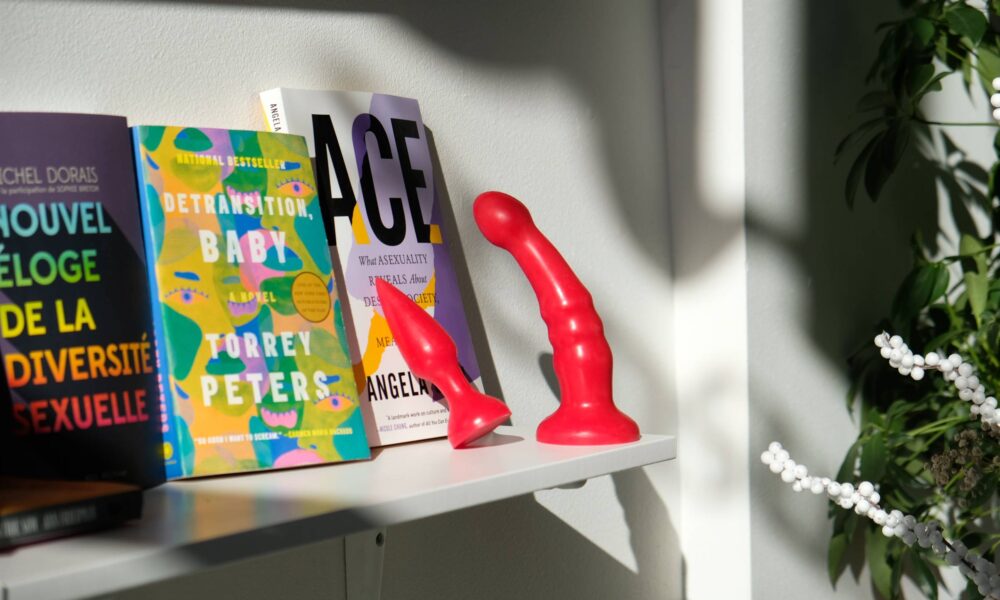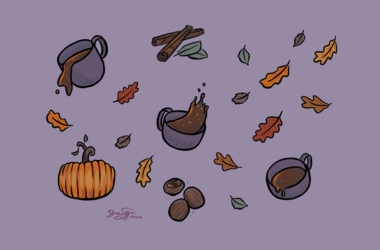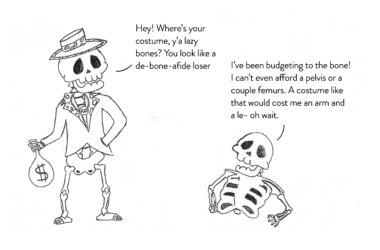In 2020, four McGill engineering students—Nina Martinez (U2), Pierre-Luc Leboeuf (U2), Ben Lusterio-Adler (U3), and Alex Moreau (U4)— were on a Zoom call after a particularly difficult exam. The conversation broached the topic of self-care routines, which eventually led to a discussion of masturbation. Sex toys came up, and after getting over the taboo, they realized there seemed to be a large discrepancy between public perception of sex toys and the market, making them curious to find out more.
Their initial market research, which surveyed over 500 individuals, showed that 85 per cent of people were not satisfied with their sex toys. Based on additional market research that included individuals from diverse demographics, they identified an important gap in the industry: One side of the market boasts fantastical toys which can be unapproachable for first-time buyers and another side boasts sterile, almost medical tools, leaving no middle ground for consumers. Many individuals wish they could just change one thing to make the toy their perfect match. So, the idea of fully customizable sex toys, Freely, was born. The company was founded by Lusterio-Adler, Martinez, Moreau, and Leboeuf while they were still completing their bachelor’s degrees in engineering.
The founders saw that while customizable sex toys did exist online, many had exorbitantly high price points. Additionally, most current customizable toys require in-person interaction between the customer and the creator, resulting in a barrier for those who may feel uncomfortable or shy. Further, while many websites claim their toys are customizable, the customization element is limited to a few pre-selected sizes, shapes, or colour palettes. These are all issues that Freely’s catalogue seeks to resolve.
In the website’s “Build Now” section, shoppers can fully customize just about any aspect of the toy: Its colour, shape, size, base, curvature, and hardness. The web design feature is highly accessible and the process of customizing your own toy can be done from your laptop.
“We also have to find a balance between creativity and safety,” Martinez said. The website’s customization tool has certain restrictions based on protecting the welfare of the customers, such as the width of the toys being limited to a 10 centimetre diameter.
The brand aims to help everybody feel comfortable and empowered in all aspects of their well-being, especially those related to sexuality.
“Inclusivity isn’t a buzzword, it’s at the core of what we are,” said Lusterio-Adler in an interview with The McGill Tribune.
Once you have ordered and designed your toy, the patent-pending, artisan manufacturing process begins. All toys are produced locally and hand-poured into custom moulds. This enables low-volume production runs while still remaining profitable. The toys also have a lifetime warranty for any manufacturing defects.
Despite its innovative concept, the brand has had difficulty with traditional advertising and funding partners. The founders explained that sex toys are often legislatively lumped in with dangerous objects such as firearms and drugs, which has made it much harder for them to pursue conventional financial avenues. They have been shut out of a vast majority of government-subsidized programs for start-ups, being told they were ineligible for numerous applications due to the nature of their product. One of the frustrating ways these restrictions have manifested themselves is in the case of Freely’s TikTok, which amassed an impressive 750,000 views in a couple of months before being permanently banned due to restrictions on the platform.
The McGill community has been instrumental in helping Freely grow its brand, and they have received lots of support from students despite the taboo surrounding sexual wellness. The university itself has also supported the brand: Freely was the recipient of the McGill Engine 2021 TechAccel Grant and ranked third in the 2022 Dobson cup for the Technology-Driven Enterprise Track.
Ultimately, they want to help you engage with pleasure on your own terms, allowing you to explore that aspect of yourself, Freely.
A previous version of this article incorrectly stated that Nina Martinez graduated in 2022. In fact, Martinez is a U2 student. The Tribune regrets this error.









